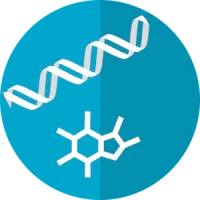Researchers from the National University of Singapore (NUS) have used big data analytics to devise a personalised tool for prediction of cancer, patient survivability and patient response to immunotherap
You might also like: AI Breast Cancer Diagnosis Matches Two Doctors
This specially-designed 'scorecard' has been designed to be used alongside the standard cancer blood test.
Named the Tumour Matrisome Index (TMI), the scorecard comprises a panel of 29 selected genes produced in the extracellular matrix (ECM) of the human body. The ECM provides structural and biochemical support to surrounding cells and the NUS team discovered that these 29 genes appear routinely in patients diagnosed with non-small-cell lung cancer (NSCLC). This accounts for about 85% of all lung cancers.
Professor Lim Chwee Teck from NUS Biomedical Engineering and recent PhD graduate Dr Lim Su Bin led the research.
“TMI can be used together with liquid biopsy, which is less invasive and less painful for the patient compared to conventional tumour biopsies,” said Prof Lim. As it only requires a blood test instead of day surgery, it can be done more frequently over the course of treatment, providing doctors with real-time information on how the patient is responding to treatment. Tissue biopsy is often done at the start and end of treatment, while liquid biopsies can be done frequently, allowing doctors to track more efficiently how well treatment is progressing. This is a big step forward in personalising cancer treatment and ensuring better patient outcomes.”
As well as detecting cancer, the TMI scores could be used to predict how well a patient will respond to treatments like immunotherapy – which is preferable to chemotherapy as it’s less invasive.
A patient’s TMI scores could also provide a better gauge on patient survivability. The researchers found that high TMI scores were usually linked to metastatic spread and early recurrence of the disease and, therefore, increased risk of death.
However, for some cancers, a higher TMI score had the reverse reading.
“This is a big step forward in personalising cancer
treatment and ensuring better patient outcomes,” said Professor Lim Chwee Teck.
The next research steps include testing TMI on more types of cancer. Prof. Lim said this will determine the accuracy of TMI in the diagnosis and prognosis via liquid biopsy or blood test.
Source: NUS
Image credit: iStock










